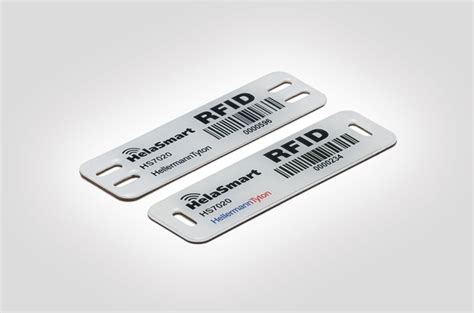rfid tracking consent Creative applications of radio frequency identification (“RFID”) technologies hold promise for consumers, businesses and government. They suggest possibilities for reducing costs through better inventory management, for improving the safety of the drug supply, for aiding in the care of the elderly and impaired, for . See more If your new items say "Part of the Gucci Tag selection, this product is .
0 · rfid tags and privacy
1 · rfid identification process
2 · rfid homeland security
3 · rfid data protection
4 · rfid cdt
5 · rfid and privacy
6 · dhs rfid report
7 · cdt rfid privacy
Location Search. Opelika, Alabama Radio Stations. We found 59 FM radio stations and 34 AM radio stations in the Opelika, AL area.
Creative applications of radio frequency identification (“RFID”) technologies hold promise for consumers, businesses and government. They suggest possibilities for reducing costs through better inventory management, for improving the safety of the drug supply, for aiding in the care of the elderly and impaired, for . See moreFor example, many contact-less payment cards employ128-bit and triple DES encryption. In a payment transaction, a contact-less chip generates a unique numeric . See more User consent and transparency becomes crucial when a tag has a unique serial number and can be associated to a consumer. It is recommended for RFID users to take steps .But to the extent that RFID devices can be linked to personally identifiable information (“PII”), including where such devices facilitate the tracking of an individual’s location, RFID raises important privacy questions.
User consent and transparency becomes crucial when a tag has a unique serial number and can be associated to a consumer. It is recommended for RFID users to take steps to secure their data by locking memory banks.
Claim: H.R. 4919, passed on 8 December 2016, allows the microchipping of "mentally disabled" citizens such as patients with autism and Alzheimer's disease.The purposes of this paper are to: (1) address the use of Radio Frequency Identification technology (RFID) by the Department of Homeland Security (DHS) to identify and track individuals; (2) outline the potential data privacy and integrity issues implicated by this use of RFID technology; (3) offer guidance to the Secretary of DHS, program manag.
Obtain Consent: Inform individuals about the use of RFID and obtain their explicit consent before collecting or using their personal data. Provide individuals with the ability to opt out of RFID tracking. RFID chips are becoming increasingly popular for tracking people and products, but they can also raise serious privacy concerns. The technology is essentially invisible, allowing for the potential of profiling and locational tracking without the knowledge or .
rfid tags and privacy
The new licenses come equipped with radio-frequency identification (RFID) tags that can be read right through a wallet, pocket or purse from as far away as 30 feet. RFID must not be used to track individuals absent informed and written consent of the data subject. Human tracking is inappropriate, either directly or indirectly, through clothing, consumer goods, or other items. RFID should never be employed in a fashion to eliminate or reduce anonymity. Transparency and User Consent: Individuals should be clearly informed about how their data is collected, used, and stored when using RFID-enabled tracking systems. Consent should be freely obtained and easily revoked.
RFID does enable retailers to surveil consumers and link them with their purchasing histories. As disconcerting as that may be, it is neither new nor unique to RFID. Anyone who uses credit cards agrees to forfeit some degree of privacy for the privilege of buying now and paying later.
But to the extent that RFID devices can be linked to personally identifiable information (“PII”), including where such devices facilitate the tracking of an individual’s location, RFID raises important privacy questions.

User consent and transparency becomes crucial when a tag has a unique serial number and can be associated to a consumer. It is recommended for RFID users to take steps to secure their data by locking memory banks.Claim: H.R. 4919, passed on 8 December 2016, allows the microchipping of "mentally disabled" citizens such as patients with autism and Alzheimer's disease.The purposes of this paper are to: (1) address the use of Radio Frequency Identification technology (RFID) by the Department of Homeland Security (DHS) to identify and track individuals; (2) outline the potential data privacy and integrity issues implicated by this use of RFID technology; (3) offer guidance to the Secretary of DHS, program manag. Obtain Consent: Inform individuals about the use of RFID and obtain their explicit consent before collecting or using their personal data. Provide individuals with the ability to opt out of RFID tracking.
RFID chips are becoming increasingly popular for tracking people and products, but they can also raise serious privacy concerns. The technology is essentially invisible, allowing for the potential of profiling and locational tracking without the knowledge or . The new licenses come equipped with radio-frequency identification (RFID) tags that can be read right through a wallet, pocket or purse from as far away as 30 feet. RFID must not be used to track individuals absent informed and written consent of the data subject. Human tracking is inappropriate, either directly or indirectly, through clothing, consumer goods, or other items. RFID should never be employed in a fashion to eliminate or reduce anonymity. Transparency and User Consent: Individuals should be clearly informed about how their data is collected, used, and stored when using RFID-enabled tracking systems. Consent should be freely obtained and easily revoked.
an rfid chip consists of __________________

rfid chip new world order
Texas A&M University is an engine of imagination, learning, discovery and innovation. Here, you'll learn essential career skills while discovering the rich values and time-honored traditions that make our university so special.
rfid tracking consent|cdt rfid privacy